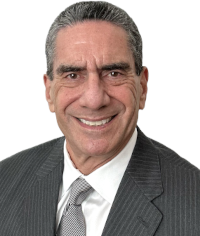 Recently, a venture capitalist, who had read my book on branding for CEOs, asked my opinion of Amazon’s brand. I couldn’t fathom it. Amazon’s sell-everything-to-everyone model, I averred, is unbrandable, not to mention, unsustainable.
Recently, a venture capitalist, who had read my book on branding for CEOs, asked my opinion of Amazon’s brand. I couldn’t fathom it. Amazon’s sell-everything-to-everyone model, I averred, is unbrandable, not to mention, unsustainable.
When trying to be all things to all people — books, appliances, fashion, TV programming, set-top box, eReader, smartphone (which has flopped), groceries, website hosting, etc. — what are you? You’re too big to brand, and to manage.
Amazon’s investors agree.
After announcing yesterday it’s 3Q14 loss of $437M, surprising Wall Street, its share price fell 11% in after-hours trading. Today, AMZN dropped $25.12 per share, or 8.34%.
Watch Jeff Bezos, Amazon’s CEO, tell Charlie Rose of 60 Minutes (on 12.01.13) how difficult it was to raise $1 million in investment capital.
Bigger Isn’t Better
The immense breadth of Amazon is quite impressive. Jeff Bezos is a brilliant man. But, his company, with 96 fulfillment centers and 225M customers worldwide, is too big — and it’s still unprofitable. Bigger isn’t better. Read “IBM’s Basic Branding Conflict.”
A bloated organization, for-profit or nonprofit, commercial or governmental, is akin to an obese person. Why does obesity destroy the health and shorten the lifespans of those so afflicted? Because once a body exceeds its optimally manageable size, it breaks down.
Back in B-school, I researched the effectiveness of conglomerates. By measuring the beta coefficients of conglomerates vs. pure-plays (narrowly focused companies), I found that conglomeration devalues companies. I never forgot that lesson.
Parting Advice to CEOs
Steve Jobs is famous for resurrecting a broken Apple Computer in 1997, by canceling many ancillary products and projects. Said he about innovation: “… it comes from saying no to 1,000 things to make sure we don’t get on the wrong track or try to do too much.” “… it’s only by saying no that you can concentrate on the things that are really important.”
Focus is destiny. Amazon has no focus.
Instead of sharpening its branding arrowhead, Amazon fattens it — and dwells in the red zone while doing so. The shareholders won’t tolerate this forever.
A good public speaker makes only a few strong points and drills them home. Why? Focus. That’s all the audience can handle. Overload doesn’t work on people or organizations.
If you want your customers, reporters, and investors to handle your brand, keep it simple and unique. That means you must keep your organization simple and unique.
Bezos admitted to Rose that, eventually, some company will disrupt Amazon. Hint: it won’t be a bloated behemoth.
If your company is too big to manage and explain, it’s too big to brand.
POSTSCRIPT #1: Wall Street Journal Downscales to Sharpen Focus (11.12.14)
POSTSCRIPT #2: Amazon Goes to War Again and Again (11.13.14)
POSTSCRIPT #3: Will Kraft Heinz Be Too Big to Brand?
POSTSCRIPT #4: Amazon to Launch House Food Brand
POSTSCRIPT #5: Google Emulates Amazon, Becomes Too Big to Brand
POSTSCRIPT #6: Wall Street Illogically Rewards Amazon for <1% Net Margin
POSTSCRIPT #7: Amazon to Open Hundreds of Physical Bookstores
© 2014 Marc H. Rudov. All Rights Reserved.
About the Author

Marc Rudov is a branding advisor to CEOs,
producer of MarcRudovTV, and author of four books

